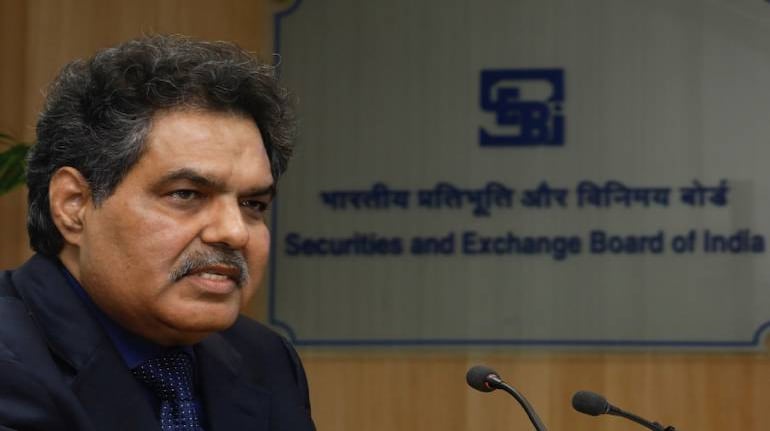



SEBI chairman Ajay Tyagi’s tenure will end on February 29, though there is speculation that he may be given an extension.
A soft-spoken Indian Administrative Services (IAS) officer of the 1984 batch, Tyagi can claim credit for resolving some of long-pending cases as well as reforms relating to corporate governance, credit rating agencies and margin structures, and development of the commodities market.
When Tyagi took charge in March 2017, SEBI was struggling with the merger of Forward Market Commission with itself, and some high-profile cases like the NSE co-location scam, on which his predecessor had not taken any view. Also, some SEBI officials were facing an enquiry in the Sharda chit fund case and irregularities in the approval for MCX-SX. The morale of the staff was low, and the government wanted somebody who could raise staff morale, who had a good understanding of financial markets, and could go about fixing things while keeping a low profile. Tyagi fitted that bill, and his experience in the finance ministry came in handy. He was given the role without an interview.
Tyagi’s first meeting with academicians, proxy advisors and merchant bankers seemed to set the tone of his agenda for the next three years. A senior official at a proxy advisors who was part of the meeting told Moneycontrol: “He is a no-nonsense person. If you are not able to make your point in a minute, he will simply switch off”.
Tyagi’s first task was to improve the standard of corporate governance in listed companies. Tyagi set up a committee under the leadership of Uday Kotak, chairman of Kotak Mahindra Bank. Most of the recommendations have been implemented, and a few have been deferred due to pressure from corporates. The splitting of chairman and managing director’s post is one such instance, where the implementation has been deferred to April 2020.
Tyagi faced his first major setback as SEBI chairman when the Securities Appellate Tribunal overturned the regulator’s decision to restrict trading in hundreds of companies alleged to be shell companies. The Financial Intelligence Unit and Ministry of Corporate Affairs had shared a list with SEBI for investigation, but the regulator was accused of having acted in haste without having followed due process.
Another SEBI decision, which drew flak was implementation of additional surveillance mechanism (ASM) for volatile stocks. The idea was to curb speculation, but the move coincided with a downturn in the market, and to an extent aggravated the slide in value of small and midcap shares.
SEBI’s decision to re-categorise large, mid and small caps also faced criticism from some quarters as the straight-jacketing led to some segments of the market becoming less liquid. SEBI, though, is reviewing this decision.
Among the long-pending cases cleared under the SEBI chairman’s watch are Satyam-PwC, action against NSEL brokers, and against the NSE in the co-location case. SEBI also acted swiftly on recent issues such as the ICICI Bank-Chanda Kochar-Videocon issue, CG Power, Sun Pharma or IndiGo.
The first case during Tyagi’s stint in which investors faced a direct loss from a securities fraud was Karvy Stock Broking. There, SEBI acted swiftly and was able to have made good most of the victims’ losses.
“Tyagi sir gave us a free hand to deal with this case,” recalls a SEBI official. “He just asked if it was legally sound to return investors’ securities back to them, which we convinced him it was.”
Another commentator, who is generally loathe to praise SEBI, told Moneycontrol that if Tyagi’s stint is not extended, “it would be the entire market’s loss.”
Perhaps Tyagi’s sternest test came when Budget 2019 announced that SEBI would have to share its excess reserves with the Finance Ministry and would need prior FinMin approval for its spends.
A well-placed source told Moneycontrol that this decision was taken by the former Department of Economic Affairs Secretary Subhash Chandra Garg without consulting the SEBI chief.
However, the DEA himself was moved out from finance ministry, points out the source. The notification on SEBI never came.
Tyagi also looked into grievances of SEBI officials, who complained about wanting to be more involved internally and being promoted more often. During his tenture, more executive directors were appointed internally from SEBI.
The generally media-shy SEBI chief meets with journalists only during the quarterly board meets and shuns public ceremonies and functions.
But suffice to say that his track record – and his “nice person” demeanour, as one observer put it – means much of the market is rooting for his extension.
Discover the latest Business News, Sensex, and Nifty updates. Obtain Personal Finance insights, tax queries, and expert opinions on Moneycontrol or download the Moneycontrol App to stay updated!
Find the best of Al News in one place, specially curated for you every weekend.
Stay on top of the latest tech trends and biggest startup news.